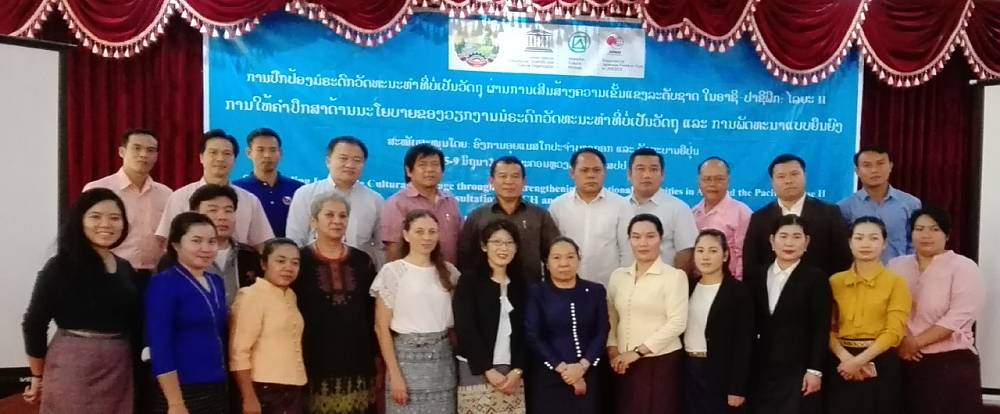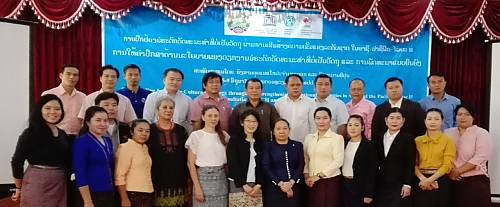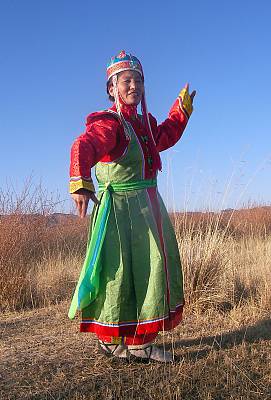Since 2011, Laos has participated in the regional capacity-building programme on intangible cultural heritage (ICH). In 2016, with funding from the Government of Japan and technical assistance from UNESCO, the Department of Heritage, under the Ministry of Information, Culture and Tourism, organized a workshop on developing safeguarding plans for ICH as well as a field pilot inventory of six ICH elements in the province of Luang Prabang. To complement these initiatives as well as the previous workshops on the implementation of the Convention, community-based inventorying and the preparation of nomination files, Laos arranged a mission to assess how various policies in the country could impact the safeguarding of ICH. The selected experts, Dr Shubha Chaudhuri from the Archives and Research Centre for Ethnomusicology (India) and Dr Kriengkrai Watanasawad from Thammasat University (Thailand), visited Vientiane, the capital of the country, from 3 to 9 June.
The kickoff meeting on 5 June provided a forum for various stakeholders to exchange about the concept of ICH in their respective contexts. Although the terminology of ICH remains widely unknown, many development initiatives targeting or integrating local knowledge have been implemented. The experts’ in-depth interviews with representatives from key ministries such as the Ministry of Information, Culture and Tourism, Natural Resources and Environment, Health, Home Affairs, the Lao Women’s Union, etc. explored several laws and decrees, to highlight existing instruments promoting an enabling environment for the safeguarding of ICH. The mission also explored the existing regional instruments for regional cooperation, such as ASEAN and its declaration. Additionally, they unearthed a number of entry points for inter-agency collaboration, which were further discussed during the consultation on the last day of the mission. These included knowledge about traditional medicines, under both the Ministry of Health and the Ministry of Natural Resources and Environment, and ethnic minority practices under the Ministry of Home Affairs, the Lao Women’s Union, the Lao Front for National Construction and the National University of Laos.
The forthcoming experts’ recommendations will be shared with all the ministries concerned to develop a concrete plan of action linking ICH and development interventions by cultural and non-cultural stakeholders.
Project:
-
Strengthening national capacities for effective safeguarding of intangible cultural heritage in Asia and the Pacific (1 April 2015 – 31 October 2017)




